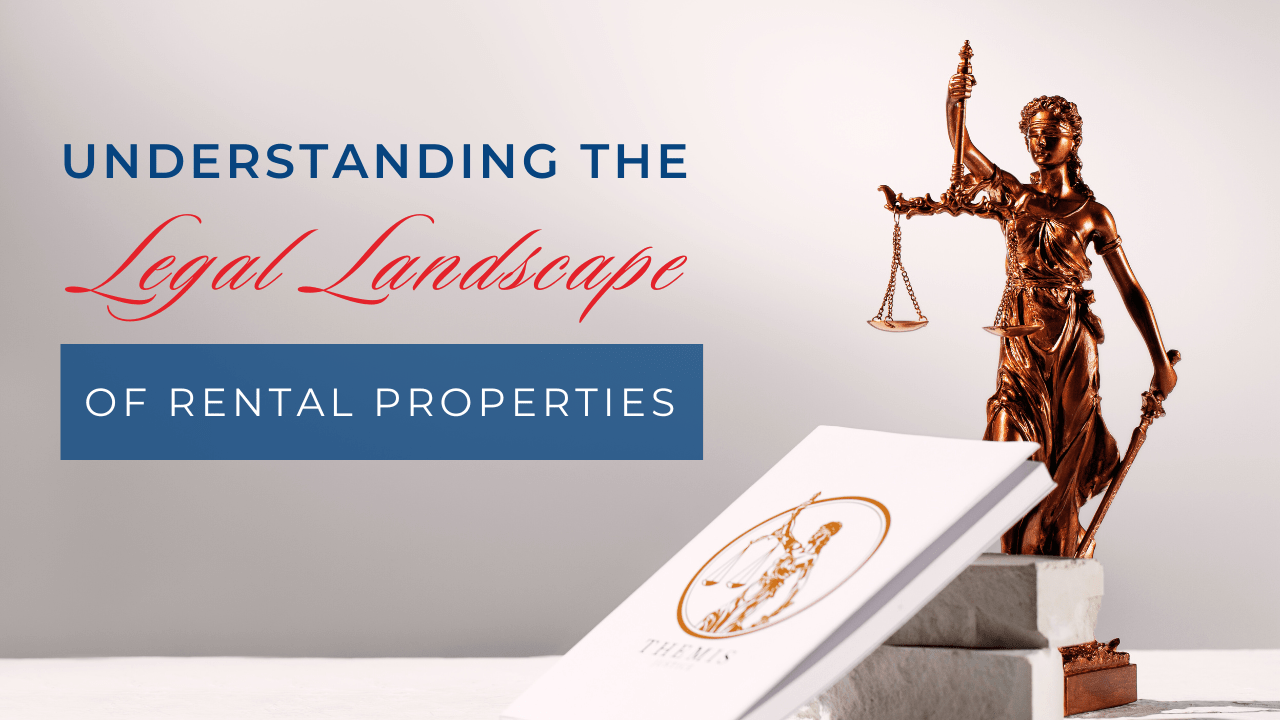
Complying with local, state, and federal laws is an important part of renting out a home. There’s a long list of laws and regulations that need your attention. Making a legal mistake is surprisingly easy, and it’s almost always expensive. You need to protect yourself from extra risk and liability by familiarizing yourself with the legal landscape of Virginia Beach rental properties. There are things you must do and things you cannot do.
New landlords are often surprised at how much legal regulation there is within the rental industry. Even experienced landlords need to work hard in order to stay up to date on all the legal changes that require understanding and compliance.
Familiarize yourself with the specific laws and regulations that will govern your role as a landlord in Virginia Beach. If you run into any confusion, make sure you have a great attorney or an experienced Virginia Beach property manager you can reach out to. We make a point of staying at the forefront of all legal changes and requirements. Our job is to protect our owners and their properties.
Here are some of the essentials that you absolutely must start with when you’re renting out a property lawfully.
State Laws Governing Virginia Beach Rental Properties
The Virginia Residential Landlord and Tenant Act (VRLTA) is the state legislation that will be of particular interest to any rental property owner because it sets forth the specific responsibilities and rights for both landlords and tenants. Here are the most important sections of this law that need your attention:
Security Deposits
One of the easiest places for landlords to make legal mistakes is with security deposits. In Virginia, the law limits security deposits to no more than the equivalent of two months' rent. That means if you’re renting out a home for $2,000 per month, your security deposit cannot be any higher than $4,000.
You must return this deposit within 45 days of the tenant vacating the property, minus any deductions for damages or unpaid rent that are clearly itemized in a written statement. You cannot deduct for normal wear and tear. Those repairs will be your responsibility as the property owner.
Maintenance and Repairs
It’s your job to provide a rental home that’s safe, habitable, and functional. You're legally required to maintain the rental property, ensuring it meets health and safety codes while also keeping major systems in working order. If a tenant requests a repair, you have a legal obligation to address the problem in a timely manner.
Not only is this a good way to comply with habitability standards and laws, it also provides you with protection for your property. Don’t let repairs linger. They’ll only become more expensive and potentially chase away good tenants.
Right to Enter
Your tenants have a right to privacy and the quiet enjoyment of their home. You cannot simply show up whenever you want and demand to take a look around. Virginia law stipulates that you must provide tenants with reasonable notice—usually 24 hours—before entering the property, except in cases of emergency or if the tenant requests repairs or maintenance without delay.
Evictions and the Eviction Process
What will you do if tenants stop paying rent? There’s an entire legal process that needs to be followed, and you need to understand that evictions are a sensitive and complicated aspect of property rental. In Virginia Beach, as in the rest of the state, landlords must provide tenants with a written notice for eviction, detailing the reason and giving a specified amount of time to remedy the situation or vacate the property. The most common grounds for eviction include nonpayment of rent and violation of lease terms.
Fair Housing Laws in Virginia Beach
You don’t want to be in a position where you’re defending yourself against fair housing violations. These are not only expensive, they’re also rather damaging to your reputation as a landlord. It’s essential that you understand fair housing requirements so you can avoid potential risk, liability, and lawsuits.
The federal Fair Housing Act prevents you from discriminating against tenants or applicants based on the following seven protected classes:
Color
Race
Disability
Familial status
National origin
Religion
Sex
The state fair housing laws go a bit further than the federal laws when it comes to who is protected. In addition to all of the federal protected classes, Virginia also makes it illegal to discriminate against tenants or applicants based on:
Elderliness
Source of funds
Sexual orientation
Gender identity
You may not be able to imagine a scenario wherein you would discriminate against anyone who wants to rent your home, but discrimination can be perceived in marketing language and inconsistent tenant screening processes. Mistakes are easy to make. Be cautious, and always work with a Virginia Beach property manager if you’re in doubt about how you should proceed.
Disclosures Required in Your Virginia Lease Agreement
Virginia law mandates that you disclose certain conditions at your rental property to prospective tenant before signing a lease with them or accepting any rent or security deposits. The disclosures that are required in your lease agreement include:
Mold disclosures. If mold has been detected at your property, let prospective tenants know when it was discovered and how it was remediated. This can be common in Virginia Beach homes, and as long as you’re proactive in cleaning it up and preventing it going forward, it’s not a big deal and something you should always be transparent about.
Lead Paint. This is also a federal law because exposure to lead can cause health problems. If there’s lead paint on your walls or window sills, disclose this to your tenants. The government provides specific information you’ll need to share.
Renovation or Demolition. Plans for significant structural changes to the property within the next six months must be disclosed.
 You also must let your tenants know if you sell the property during the tenancy. You should be prepared to share information on the new ownership if this occurs during their lease term.
You also must let your tenants know if you sell the property during the tenancy. You should be prepared to share information on the new ownership if this occurs during their lease term.
These are some - but not all - of the laws you need to be aware of when you’re renting out a property in Virginia Beach. We’re happy to be your property management resource. Please contact us at Rental Homes USA with any questions about laws and legal requirements.








